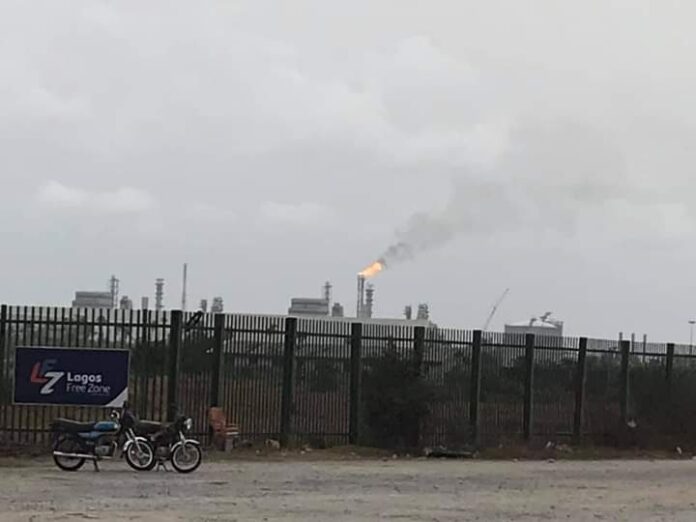
Mr. Aliko Dangote, the president of the Dangote group of companies says the petrol from its Lagos refinery will be in the market in fourty-eight (48) hours.
Dangote’s pronouncement, which was quoted by an inside source, added that the refinery is scheduled to supply a total of 25 million litres of petrol to the Nigerian market in the month of September.
Another source noted that the Dangote Refinery will today, Tuesday, September 3 roll out its first shipment of Premium Motor Spirit (PMS), also known as petrol.
The roll out comes on the heels of the successful completion of the testing phase of the refinery.
The refinery has the capacity to produce 650,000 barrels per day and is now ready to introduce its products to the local market.
The product is to be handed over to the Nigerian National Petroleum Company Limited (NNPCL), which will be responsible for distributing the product for now.
Meanwhile, the Nigerian Midstream and Downstream Petroleum Regulatory Authority, NMDPRA, said it met with the Nigerian National Petroleum Company Limited to agree on local crude supply to the refinery.
“At the NMDPRA headquarters in Abuja, NNPCL reached an agreement to commence crude oil sale and supply to Dangote Refinery in local currency.
“The refinery is now poised to supply an initial 25 million litres of PMS into the domestic market this September. And will subsequently increase this amount to 30 million litres daily from October 2024,” the NMDPRA said on its X.
Aliko Dangote had also earlier formally announced that the 650,000-capacity oil refinery in Lagos has commenced petrol production.
In a live broadcast on Tuesday, Dangote said the supply of petrol into Nigeria would change the country’s energy landscape.
While appreciating President Bola Tinubu for approving the sale of crude in naira to local refineries, Dangote said many did not believe that the $20bn refinery could start petrol production.
He said the capacity would meet local demands and the demands of sub-Saharan Africa.















